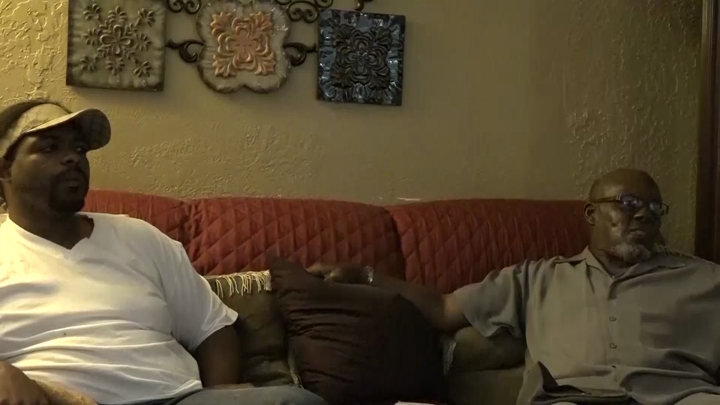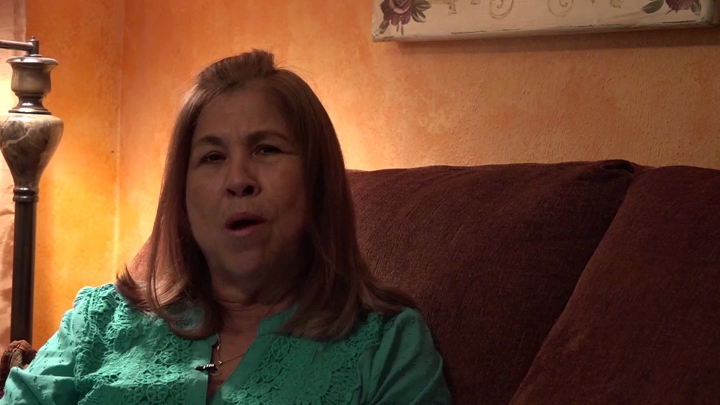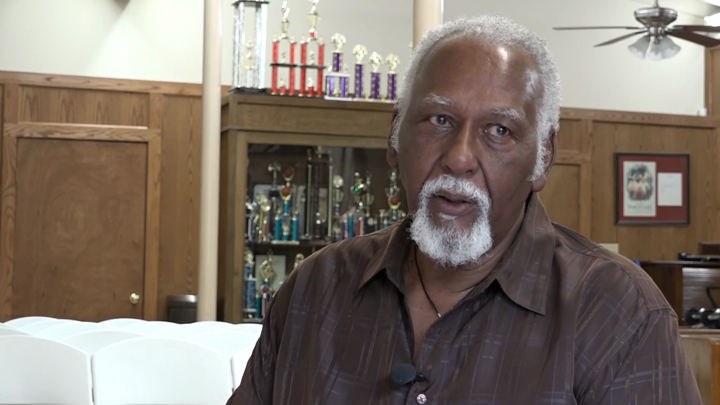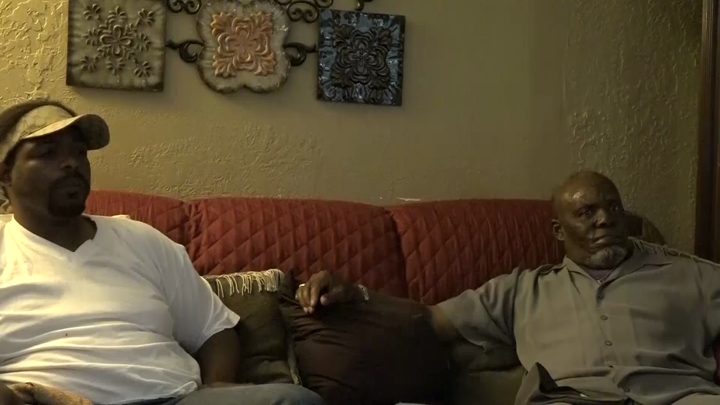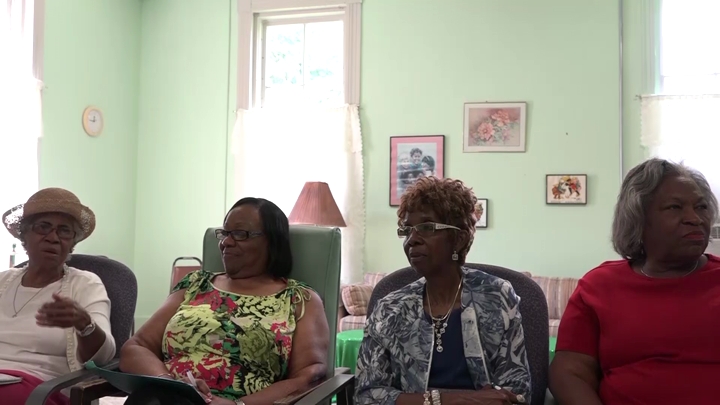Lee / Segregation and Discrimination Experiences
sign up or sign in to add/edit transcript
Interviewer: You grew up in segregation? Lee: Yes Interviewer: What was the first personal experience you had with discrimination or with segregation? Lee: I remember when my mother used to have to take me to Houston and to Galveston to the hospital. I was burned when I was two years old. I remember getting on the bus with my mom. I looked and saw some seats up to the front and I asked my mother, I said, “There’s some seats here, mama. Let’s sit down here,” and I remember her popping me and telling me “Get on back.” There wasn’t any seats in the back to be sitting in so we had to stand up. So, it was—a few men would get up and let my mother sit down and then somebody would hold me occasionally. Riding the bus was my first touch of segregation and we used to go to uptown and you couldn’t drink out of a certain fountain. You had to go to the black side of the fountain, on one side, and whites on the other side. You had to the back door of a restaurant to get something to eat if you wanted to eat. There was a lot of things about segregation. You couldn’t go in the front doors of certain places, you have to always go in the back doors. Interviewer: What about you in terms of encounters with discrimination? Proctor: My first encounter, I was a young boy. Me and my dad were walking home, and I said I was thirsty, so we stopped by the courthouse in Conroe. I could read little words, black and white, and I asked him, “Dad, why do they have signs “black and white?” and he was like, “Just drink out of this one right here.” I was like, “Well, dad, this is not cold. I want some of the other one.” He was like, “No, just drink this one here and let’s go.” I didn’t understand then, but I understand now. As I got older, I understood. That was my first encounter. Interviewer: That was the eighties? Proctor: Yes. Interviewer: They had black and white water fountains in the eighties? Proctor: Yes ma’am. Interviewer: Ok. Lee: (inaudible) Proctor: Yes, ma’am and prior to that, after I started school, elementary school, it was times to where the KKK were having rallies on the courthouse square. My mom and dad would come get us from school early, so we wouldn’t ride the bus home, because they would throw rocks and the bus if they saw black kids on the bus. So, they would come get us early and bring us home. They also had a little gang, I can’t remember the name, but they were out of Cut-and-Shoot, it was a white gang. They used to come to Dugan and ride around and jump on black people. I don’t remember the name of it, but I do remember an incident where a lady, her name was Buckingham. They had jumped off of the truck and were throwing rocks right on the corner. I remember, I was standing in the yard. My dad ran out of the yard to help her, to get them off of her. I’ve seen—I want to say right before me and my wife graduated, well not graduated, but before we got into high school. It was about 1996 or 1997, 1995 at the latest. They had a big riot at Conroe High to where the KKK was up there still recruiting. Black and the Hispanics got together and there was a big riot. They had a bunch of law enforcement up there and I think that was the last time they permitted them to come to Conroe High to recruit. Interviewer: So, this was African Americans and Hispanics together? Proctor: Yes, ma’am and they were fighting against them allowing the KKK to come up there and recruit. Interviewer: What did the rioting consist of? Proctor: It was a bunch of fighting. They shut the school down for about a week, I believe, until they got everything simmered down, but there were still outbursts here and there because tempers were flaring. All in all, they stopped allowing them to come to Conroe High to recruit. After that—I mean, it’s still there but it’s not as broad as it was then. Interviewer: So, the administration was allowing— Proctor: Yes, ma’am. Interviewer: --onto the—were they allowing them inside the buildings or just on, like, the grounds? Proctor: They were on the grounds. They couldn’t come inside the school, but they— Interviewer: They could get on the grounds. Proctor: --they were outside, handing out fliers, recruiting, signing petitions. Interviewer: Sorry, my brain just short-circuited a little bit. And your experience in school— Lee: I also remember when Walgreens, when they did integrate, have integration. They had to get the police—they had to get the FBI down here to make Walgreens serve the blacks or close it up. So, he chose to close up the place (inaudible). So, we left school and it was in the sixties and we marched on Walgreens, a lot of students from the school. When we got up there to Walgreens, he immediately called the police department. The police escorted us out of the school. They marched us around and made a complete circle—square and took us back all down to the police department. They tried to pin all kinds of stuff, frame you. Saying that you did this, and you did that. There wasn’t but two people—three of us they locked up down there and Nelder Baker finally called the FBI and the FBI came down, he had to turn them loose.


